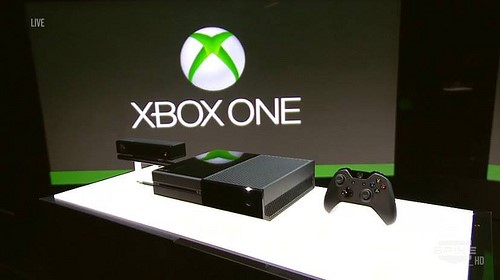After an endless stream of rumours and hype, Microsoft has finally revealed the successor to its highly-popular video games console the Xbox 360 – the Xbox One.
Revealed to a packed audience at a specially-constructed Microsoft base in Redmond, Washington, gamers were given their first peek of one of the big players in the next major battle of the console war.
In case you missed it, you can see the full reveal, complete with intriguing partnerships and brand-new games packed with crisp graphics, through this link. However, those who did catch the unveiling are likely to be musing at how Microsoft is taking gaming away from solely a gamepad.
Here is a glimpse at how the Xbox One could soon be the main vocal point of your living room and beyond:

Outside of the launch of the three main video game consoles of the last generation – the Xbox 360, Sony’s PlayStation 3 and the Nintendo Wii – arguably the most intriguing technology in the industry was Xbox Kinect.
Whereas motion-sensor concepts by Sony and Nintendo required you to always have a remote in your hand in order to interact with a virtual world, Microsoft gave you the option to actually become the controller.
However, the intrigue soon gave way for some disappointment when Kinect was released worldwide in 2010. Initially, the gadget was laggy and unreliable, while requiring you to have a considerable amount of space in your home to actually use it. Even when things picked up for the device, there was little support in the form of AAA games to once again peak interest.
With the new Kinect though, which will be bundled with the Xbox One at launch later this year, it appears that improvements are being made to the device across the board.
For starters, the enhanced Kinect sensor is now able to pick up the movements of 25 joints in the human body, right down to a subtle lean in the spine or a slight shrug of the shoulders – great for navigating the Xbox One’s homepage or playing a game controller-free then.
Furthermore, the gadget’s camera is able to create an image of a gamer that is detailed to the point where a shirt’s wrinkles and buttons can be passed over into a virtual reality seamlessly.
As Phil Harrison, a corporate vice president at Microsoft, mused to Eurogamer in an exclusive interview: “So with Xbox One, what we did with the Xbox One Kinect sensor is totally redesign it, so it’s wider field of view, it has new technology to detect motion in the room, it has a more sophisticated sound and voice recognition system, which dramatically improves the fidelity, precision and accuracy of Kinect compared to Kinect for 360.”
Xbox SmartGlass to learn a few new tricks
Microsoft certainly changed the landscape of video games last year, when it launched Xbox SmartGlass. An application that can link an Xbox 360 up with a device powered by Android, iOS or Windows, the strategy has worked to enable entertainment to become much more interactive.
At the Xbox One unveiling though, Microsoft showcased the next-generation of Xbox SmartGlass.
Just say you have a Samsung Galaxy S4 with the app downloaded then. By using your smartphone’s stylus pen, which can be purchased at affordable prices as part of Mobile Madhouse’s excellent Samsung Galaxy S4 accessories range, you will have the power to switch channels on live TV without ever needing to lift up a remote or controller.
Mind you, Xbox SmartGlass has always been hailed as offering users with “second screen content”, and this is not going to change any time soon. If you are watching NBA on your Xbox One, to take the example shown at the reveal event, you will now have the opportunity to see your fantasy sports league being updated on your smartphone every time the score changes.
Microsoft Studios’ corporate vice president, Phil Spencer, summed up to IGN: “Xbox One was designed from the beginning understanding that multiple devices in the family room exist. Some of those devices may leave the family room and still want to remain connected to the experience.
“People might have multiple devices and have multiple players in the room who actually want to interact with the experience on-screen with their own private screen or they might want to play and have their own data. It was definitely a design criteria from the beginning for us because we’ve seen the usage of SmartGlass as very strong on the 360.”
Much more will be revealed regarding the Xbox One at Microsoft’s E3 2013 press conference on June 10th.


